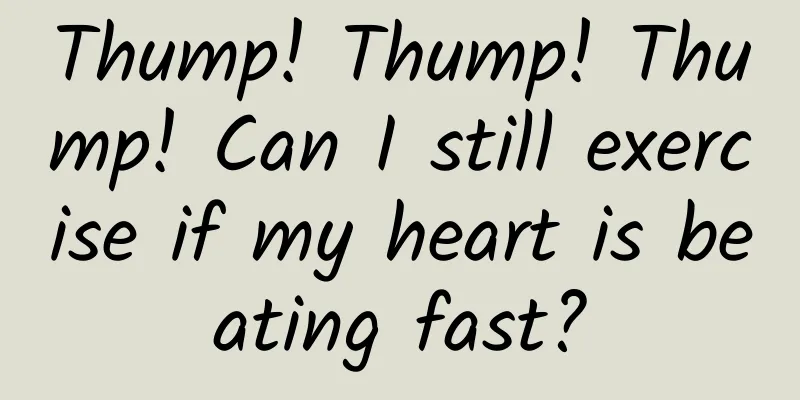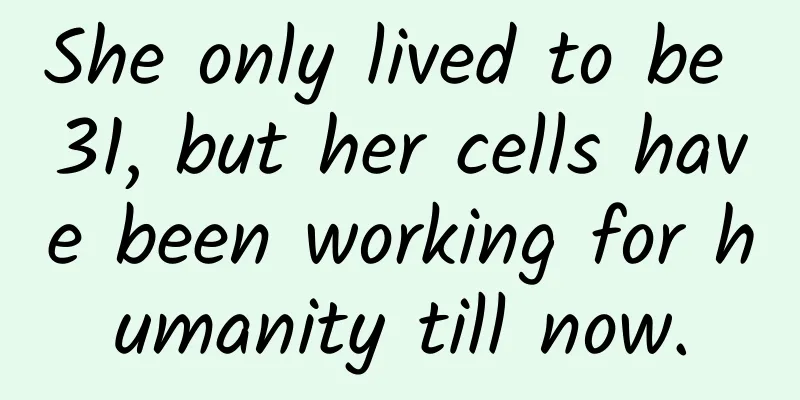Thump! Thump! Thump! Can I still exercise if my heart is beating fast?

|
Thump! Thump! Thump! Do you also sit and do nothing? What if the heartbeat is fast? That's right! My heart rate is usually over 90 when I'm sitting, and it goes even higher when I move a little. I also did an electrocardiogram, and it was diagnosed as sinus tachycardia . At rest , the normal heart rate is 60 to 100 beats per minute. When the heart rate is greater than 100 beats per minute , it is called sinus tachycardia. Image source: Photo Network In fact, the heart rate of most healthy adults is between 70-90 beats/minute. If it exceeds 90 beats/minute, they may experience symptoms such as palpitations, heart fatigue, and weakness . First of all, heart rate is affected by many factors and there are individual differences. If your heart rate is too fast and you have symptoms such as palpitations and fatigue , you need to go to the hospital to rule out pathological factors , such as hyperthyroidism, anemia, organic heart disease, etc. Image source: Photo Network If none of these diseases are present, then it is a physiologically rapid heart rate , which is related to age, gender, sympathetic nerve excitement, etc. If the heart rate is pathologically increased , it is recommended to follow the doctor's advice for treatment. If it is physiological heart rate increase , you can try the following methods: ● First of all, you should maintain a regular work and rest schedule, ensure adequate sleep, and avoid overwork ; ● Quit smoking and drinking, and try to drink less stimulating drinks such as strong tea and coffee ; ● Maintain mental health and avoid being in negative emotions such as tension and anxiety for a long time . Image source: Photo Network In fact, sinus tachycardia is not a contraindication to exercise. Instead, appropriate exercise should be performed . This is because sinus tachycardia in most healthy people is caused by sympathetic nerve excitement, and exercise can reduce sympathetic nerve excitement and thus slow down the resting heart rate . Remember, exercise should be gradual and you should choose the appropriate exercise mode . For example, you can start with low-intensity exercise such as walking or brisk walking. Generally, the heart rate during exercise is 20%-40% faster than the resting heart rate, which is a relatively safe and appropriate starting amount of exercise . The intensity of exercise can be adjusted according to the situation later. certainly You can also seek help from a specialist in a regular hospital To formulate and monitor exercise plans~ Statement: This article is a medical-related educational popular science article. It does not involve specific treatment methods or medical behaviors and cannot replace hospital visits. Physicians who collaborated with this article Content Production Editor: Yang Yali Map: Eastern Zhou Dynasty |
>>: Smart bracelets now have charging freedom?
Recommend
China Brand Day, the 25 most popular Chinese brands among the public!
Today, May 10th, is the second " China Brand...
Metal + Glass Dashen X7 Real Machine Experience
January 8 (Reporter Zhang Xiaodong) As an importa...
“Double 12” marketing promotion activities for educational institutions!
Double Eleven has just passed, and Double Twelve ...
Who understands! It turns out that the whole world is pretending to be "adults"
After the Chinese New Year, in the eyes of your p...
How does MissFresh conduct private domain operations?
In the past, when we went to the supermarket to b...
What is Tik Tok SEO? Uncovering the working principle and recommendation algorithm of TikTok search algorithm
Because I wrote an article called "SEO Think...
What happened when Beijing issued the blue high temperature warning signal? What is the high temperature in Beijing?
Beijing issues blue warning for high temperature ...
SKF sued by Daimler for alleged monopoly
According to foreign media reports, SKF was punis...
Can anesthesia harm the brain? Is local anesthesia better than general anesthesia? The doctor tells the truth...
Expert of this article: Zhang Zhijian, Master of ...
The most popular iOS automation testing tools in 2022
The year-over-year growth in iOS device sales has...
Let the robot play table tennis, can it catch the ball with both forehand and backhand, and spin? Netizens: See you at the Olympics!
Written by | Ma Xuewei Preface Robots can now pla...
How to apply for a WeChat Mini Program account? How does a company register and develop a mini program?
Q: How to apply for a WeChat Mini Program account...
The countdown to iOS 13 has begun! The functions are fully upgraded, and old models such as iPhone 6/SE are eliminated!
Apple has released the iOS 12.3 update for a whil...
Is the Vernal Equinox the Earth’s exclusive right?
Xinhua News Agency, Tianjin, March 19 (Reporter Z...
Why can't astronauts get out of the return capsule right away after returning to Earth? Why do they have to lie down after leaving the capsule?
Friends who have watched the live broadcast of th...









